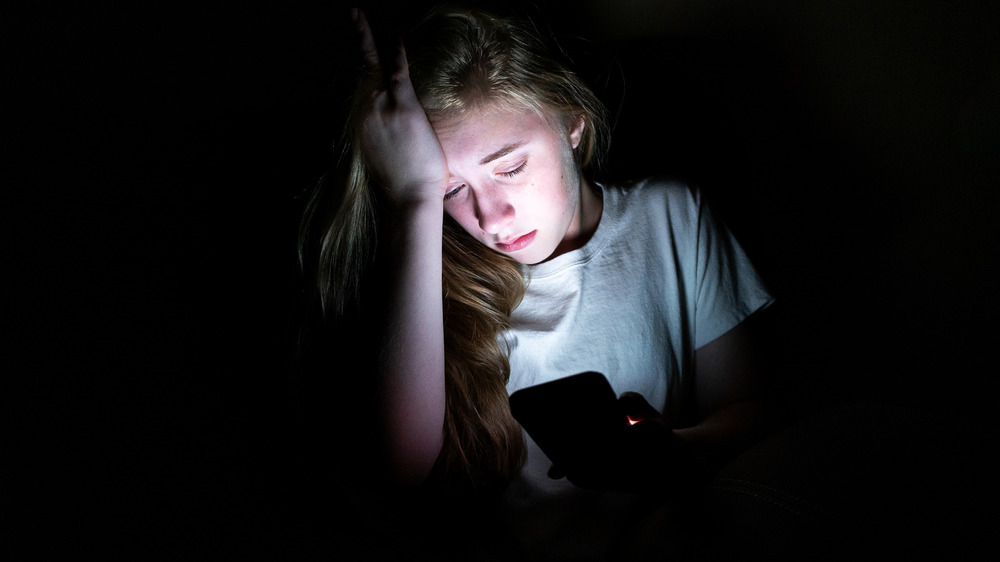TikTok's Newest Food Trend Is Concerning For Parents. Here's Why
It's estimated that between 93 and 97 percent of teens between the ages of 13 and 17 are using at least one social media platform (via the Journal of Adolescence). As apps like TikTok and Instagram continue to explode in popularity, experts are becoming increasingly worried about the effects of food-related posts on children and teens. One trend in particular, where users post videos titled "What I Eat in a Day," is especially troubling for parents.
Social media influencers often use their large following to promote beauty products or clothing brands. But recently, these accounts have started posting daily diaries of exactly what they eat at every meal in an effort to share what they believe are healthy eating habits (via Healthline). Unfortunately, not only are many of these meal plans unhealthy, but experts say they can be downright dangerous. And because eating disorders are the third most prevalent chronic condition among adolescents (via Pediatrics), it's important that parents pay attention to what messages about eating and diet culture their children are getting from these popular platforms.
While the "What I Eat in a Day" video trend started with healthy lifestyle influencers just posting their daily meals, many of these videos now start out with shots of people's bodies (via Health). Whether they know it or not, by setting up a comparison between what they look like and what they eat, the people behind these videos are also inviting their viewers to compare their own bodies to others'.
The danger of comparing diets
"What I Eat in a Day" videos lead viewers to incorrectly believe that if they eat the same diet as the influencer, they'll achieve the same body shape. Health and nutrition experts say that this may cause people to feel anxious, insecure, and self-conscious about their own bodies and eating habits. By setting unrealistic expectations for themselves around diet, viewers are more likely to develop disordered eating habits or even a life-threatening eating disorder (via Pediatrics).
The internet can be full of helpful food and nutrition resources if you follow reputable professionals. Parents are encouraged to work on modeling healthy body image and eating habits for their children. For those who are unsure of where to start, consider finding a registered dietician, either online or in person. These are experts who are trained to help you create food habits that are healthiest for you, because when it comes to your body, one size does not fit all.
If you are struggling with an eating disorder, or know someone who is, help is available. Visit the National Eating Disorders Association (NEDA) website or contact NEDA's Live Helpline at 1-800-931-2237. You can also receive 24/7 Crisis Support via text (send NEDA to 741-741).


